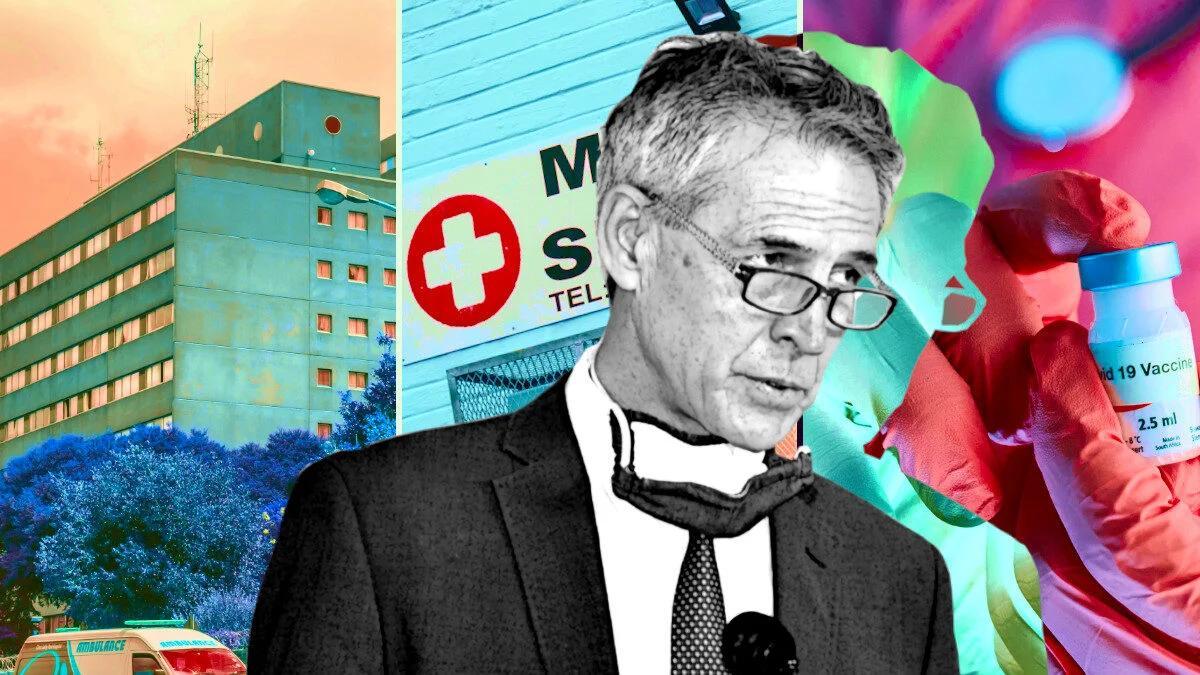Africa-Press – South-Africa. The National Department of Health (NDOH) says that it is in talks with the National Treasury over changes to the medical aid tax credit regime in the country, with the ultimate goal to get rid of the rebate.
This is because the credit will become unnecessary or even amount to “double funding” of health services once the National Health Insurance (NHI) scheme is in place.
Presenting on the NDOH’s 2024/25 annual report on Friday (10 October), the department addressed some questions on the NHI’s funding.
According to the deputy-director general responsible for the NHI, Dr Nicholas Crisp, one of the key sources of funding for the scheme will come from the medical aid tax credit.
He confirmed that the NDOH and the finance ministry are in active talks about the rebate and how to change it and redirect it to the NHI.
“There have been discussions with the National Treasury. There have been lots of correspondence forwarded to the minister,” he said.
“There was a discussion or various exchanges of papers that have taken place between bodies outside of government with the government about the implications of the tax credit.”
Crisp noted that, through the credit, the state currently provides credits to the value of somewhere close to R34 billion to members and beneficiaries of medical schemes.
“Once those services are paid for by the (NHI) fund, it would serve no purpose,” he said.
“In fact, it would be double funding for the government and the tax authorities to allow that money to be paid back to members of the public when that money is actually being spent for the delivery of their health services through the services of the NHI fund.”
The removal of medical aid tax credits has been on the NHI roadmap for some time and has often been pushed as a response to questions on where the required money for the scheme will come from.
Other noted funding mechanisms are redirecting budgets and a slew of additional taxes, like a payroll tax and surcharge.
Unfortunately, there is still no official costing of the NHI, nor any details on how long it will take to fully roll out. There is also no indication as to what services it will cover.
However, despite these glaring gaps, the government is fully pushing ahead with its plans to dismantle tax relief for taxpayers and to diminish private healthcare funders.
Groups impacted by these moves, including industry bodies representing all major medical aids and funders in the country, have lodged legal challenges against the NHI laws, including on Constitutional grounds.
Won’t happen overnight
The NDOH is doggedly pursuing the NHI, despite many implementation questions remaining unanswered.
According to Crisp, these legal challenges “misinterpret” the NHI rollout and the department’s plans to “phase out” these structures over time.
He said that the phasing out of the medical aid tax credit, for example, “will happen systematically”, where various thresholds for qualifying for the tax credit could be introduced over a period of time.
“That is what we have been discussing with treasury,” he said, adding that the intent is to implement the changes “without collapsing the current services”.
“That clearly can’t all happen at once, and there seems to be a lot of misinterpretation in the various court applications regarding the requirement (assuming) that the phasing out of these credits must happen all at once,” he said.
However, as has become the trend with the NHI and the health department, there are no set timelines for when or how this will happen. This continues to leave an entire industry mired in uncertainty.
In its court papers defending against the challenges brought by healthcare funders, the department indicated that there is no intention to remove tax credits in the short to medium term.
But Crisp has now confirmed that the groundwork is being laid with discussions between the NDOH and National Treasury.
In the 2025 budget, Finance Minister Enoch Godongwana announced that the medical aid tax credits would not be adjusted for inflation, adding another stealth tax on taxpayers.
Economists have expressed a degree of uncertainty about the credits going forward.
While most agree that the tax credit won’t be pulled in its entirety any time soon, many anticipate that, at the very least, they won’t be adjusted upwards.
This means taxpayers can, going forward, expect the medical aid tax credit to decrease in value (either nominally or through inflation), the introduction of qualifying thresholds, and eventually for the rebate to be pulled entirely.
For More News And Analysis About South-Africa Follow Africa-Press






